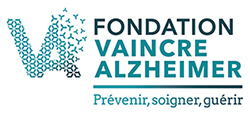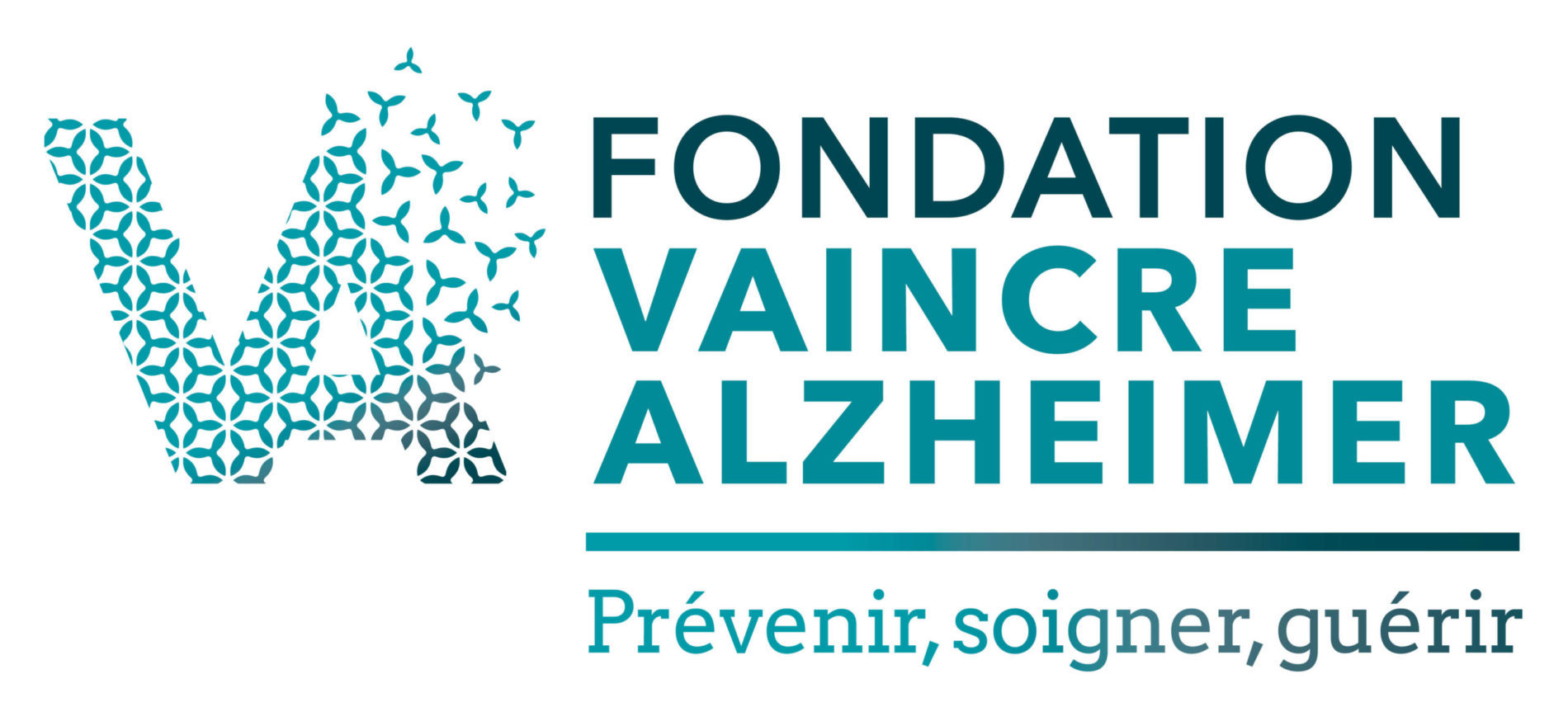PROJECTS SUPPORTED FOR 2020
You can read the descriptions and results of each research project on Alzheimer’s disease funded by Fondation Vaincre Alzheimer.
Dr.Bénédicte MANOURY
Institut Necker Enfants Malades – CNRS, University of Paris, Deaprtment of Immunology, Infectiology, Hematology
TLR9-triggered innate immune responses in Alzheimer’s disease pathology
PROJECT SUMMARY
Alongside amyloid-β and Tau, immune responses and chronic inflammation are now recognized as central to Alzheimer’s disease (AD) pathology. Immune activation by aggregated proteins or environmental challenges e.g. infection is orchestrated by specific receptors, such as Toll-like receptors (TLRs) present in immune cells including microglia. The intracellular processes by which TLRs contribute to AD pathology are not known. Our proposal is centered on understanding the complex interaction between peripheral immunity and microglial functions. We will focus specifically on TLR9 signaling as there is evidence supporting the putative role of TLR9 and its activating components in AD pathology.
RELEVANCE OF PROPOSED RESEARCH TO ALZHEIMER’S DISEASE
Our project encompasses novel conceptual framework to understand the complex and contradictory immune responses observed in AD. Systemic inflammation can lead to modifications in microglial responses, which in turn can affect AD pathology. Examination of the cell-specific mechanisms through which AD pathology is modified by generating AD mice inactivated for TLR9 in peripheral cells (dendritic and myeloid cells) as well as in microglia and thorough depth RNA and epigenetic analyses will shed light on complex cross-talk between peripheral immune cells and microglia and will bring in forefront the potential mechanisms by which environmental factors affect AD pathology.
January 1st, 2021 – December 31th, 2022 (2 years)
100 000 €
Dr. Cécile PROUST-LIMA
INSERM, Bordeaux Population Health Research Center
Identifying dementia subphenotypes from trajectories of multimodal biomarkers
PROJECT SUMMARY
Our ID3M project envisions to uncover latent sub-phenotypes in Alzheimer’s Disease and related dementias (ADRD) from the trajectories of multiple biomarkers including fluid markers, brain imaging, and neuropsychology. We will develop for that a robust statistical tool combining machine learning and dynamic modeling which simultaneously analyzes the biomarkers trajectories, identifies subgroups of individuals with distinct evolution patterns, and selects the most relevant biomarkers for endophenotype discrimination. The project will leverage rich data of 5 complementary clinical and population-based cohorts to identify the subtypes and characterize their specific physiopathological pathways.
RELEVANCE OF PROPOSED RESEARCH TO ALZHEIMER’S DISEASE
Many neuropathological processes have been identified in the progression of ADRD including protein accumulation in the brain, regional brain atrophies, or cognitive dysfunction. However, the sequence, shape, and temporality of these alterations are highly heterogeneous, and such temporal and phenotypic heterogeneity constitutes a major impediment to the etiologic understanding of ADRD and their underlying mechanisms, and to an effective and targeted therapeutic research. The project will provide cutting-edge technology for a new understanding of ADRD by unraveling the latent sub-phenotypes from large and rich cohort studies and characterizing their physiopathological pathways.
Avril 1st, 2021 – Mars 31th, 2023 (2 years)
100 000 €
Dr. Frédéric CHECLER
CNRS-UCA, Lab. of Cellular and Molecular biology of normal and pathologcal cerebral aging
Role of C99 oligomerization and its exosomal spread in Alzheimer’s disease
PROJECT SUMMARY
Our recent work showed that exosomes, small endosomal-originating vesicles, purified from Alzheimer disease (AD) models contain the β-secretase-derived APP fragment (APP-CTF), C99, existing as both monomers and oligomers. Here we wish to further characterize C99 oligomerization and to study exosomal spread of toxic C99-containing oligomers. Our study is based mainly on high resolution imaging of both C99-oligomerization and exosomal tracking in cell/organotypic/microfluidic device cultures and in animal brains. To track overall C99, we will generate GFP-fused C99 and use a bimolecular fluorescence complementation (BiFC) approach to visualize C99 neo-oligomerization.
RELEVANCE OF PROPOSED RESEARCH TO ALZHEIMER’S DISEASE
Endolysosomal network (ELN) dysfunction is one of the earliest features of AD and implies all ELN compartments including exosomes. A growing body of evidence shows that this ELN dysfunction is associated with early endolysosomal accumulation of C99 and its levels are consistently increased in AD model-purified exosomes. Our recent study revealed that in these vesicles, C99 can oligomerize alone, or in combination with the α-secretase derived fragment C83, but the role of these oligomers remains unknown. Since exosomes are known to participate to the Prion-like transmission of neurotoxic proteins, a key role in the spread of toxic C99 and or C99/C83 oligomers in AD could be envisioned.
July 1st, 2021 – December 31th, 2024 (3 years)
118 153 €
Dr. Lucile BEN HAIM
CNRS, CEA, Paris-Saclay
Targeting astrocyte Kir4.1 to treat depressive symptoms in Alzheimer’s disease
PROJECT SUMMARY
Depressive symptoms are prevalent in Alzheimer’s disease (AD) patients but their cellular basis remains poorly understood. Recent studies identified astrocyte Kir4.1 as a central regulator of depressive-like symptoms (DLS) in rodent models of depression; but it has never been studied in AD. This project aims at targeting Kir4.1 to rescue DLS in AD mice. I will use viral gene transfer to modulate Kir4.1 in the lateral habenula in APP/PS1dE9 AD mice, which display early DLS. First, I will evaluate the effects on DLS through comprehensive behavioral analysis. Second, I will examine changes in astrocyte transcriptome upon Kir4.1 modulation to identify novel downstream molecular targets.
RELEVANCE OF PROPOSED RESEARCH TO ALZHEIMER’S DISEASE
Depressive symptoms are prevalent in Alzheimer’s disease (AD) patients, especially at the prodromal disease stage. These distressing symptoms accelerate AD progression and are often resistant to conventional antidepressants. Yet, the neurobiological underpinnings of depressive symptoms in AD remain unclear, which impedes the development of alternative therapeutic strategies. This study aims at determining the therapeutic potential of targeting the astrocyte protein Kir4.1 to rescue depressive symptoms in a mouse model of AD and identify drugable downstream targets. Promoting AD patient wellbeing through decreasing depressive symptoms could also improve dementia.
January 1st, 2021 – December 31th, 2022 (2 years)
40 000 €
Dr. Santiago RIVERA
Aix-Marseille Université, Institute of Neuropathophysiology
Unraveling MT5-MMP/APP neuronal subcellular interplay in Alzheimer pathogenesis
PROJECT SUMMARY
Our goal is to better understand the pathogenic interplay between the amyloid precursor protein (APP) and membrane-type 5-matrix metalloproteinase (MT5). We hypothesize that MT5/APP interactions at specific subcellular loci yet to be identified contribute to the early stages of AD. Cell biology, biochemistry, advanced microscopy, and electrophysiology methods will be used in genetically modified murine neurons to address two aims: 1) Decipher the intracellular trafficking and fate of APP and its metabolites in AD neurons upon MT5 modulation. 2) Identify the structural domains of MT5 that affect APP trafficking and amyloidogenesis, and the consequences for synaptic integrity and function.
RELEVANCE OF PROPOSED RESEARCH TO ALZHEIMER’S DISEASE
This proposal aims to decipher novel mechanisms of Alzheimer’s pathogenesis involving the recently discovered APP processing secretase MT5-MMP and its control on the fate of APP or APP metabolites at the subcellular level. We expect to i) generate new concepts in the field related to the proteolytic, and more unusual, non-proteolytic moonlighting actions of MT5-MMP, and ii) contribute to better understand neuronal APP trafficking, still largely unknown despite its pathogenic relevance. Eventually, the project will help us validate MT5-MMP as a new target in AD and lay the foundation for innovative therapeutic strategies targeting MT5-MMP/APP interactions in specific subcellular structures.
January 1st, 2021 – December 31th, 2022 (2 years)



